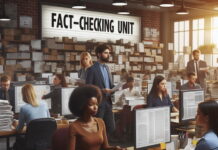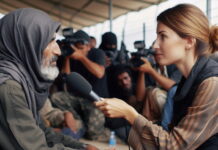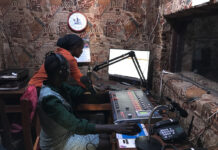Keeping out of trouble when covering elections

Journalists covering elections should never carry a weapon, should have first aid training, dress appropriately, listen to the locals and avoid confrontation. Just some of the tips set out by the International Federation of Journalists (IFJ) in the Election Reporting Handbook which is reproduced on this site with permission.
Staying safe and healthy
Never carry a gun or other weapon. Get basic first aid training. This does not mean an obligation to provide medical care to every victim you see, but it may assist an injured colleague.
Know your rights
It is useful to have an understanding of the regulations which relate to unrest areas, and to know which areas are affected. This knowledge will allow you to challenge with confidence any member of the security forces who tells you that you may not take photographs, or who orders you to leave an area when you have a right to stay. An irresponsible or uninformed act may not only put you in danger, but could also have repercussions for colleagues.
Know your destination
Be as prepared as possible before leaving the office. Know what political, racial, religious or any other conflict exists within a region. Information can keep you out of trouble. Talk to other journalists. Networking is important. If you have experienced problems in a particular area, warn other journalists to be careful.
Make contacts
Get to know the media officers of all the major organisations in the area. Look out for press marshals at rallies and marches. If you have any difficulty, ask a marshal for help. If you are covering a major protest march or political rally, survey the route/venue beforehand. Look for telephones that can be used, vantage points from which you can survey the event without being too close in case of trouble.
Be familiar with the roads and where they lead to in case you have to leave suddenly. Learn and observe local community protocol. This could include who you speak to first when you go into a community, and how you address leaders.
Dress appropriately
Always dress in comfortable clothing that does not limit your freedom of movement. Especially no heels or narrow skirts.
Clothing that attracts attention to you is out of place in a trouble zone. Dress to be inconspicuous. Avoid leather jackets, expensive sun glasses or jewellery. They make you a walking target for criminals.
Be aware of the colours of the political movements and parties active in your region, and avoid wearing them in the same combinations.
Some journalists prefer to dress formally, but many believe that it is better not to be too well-dressed for fear of being mistaken for police officers. Avoid t-shirts with political slogans. There is a debate whether it is better always to be instantly identifiable as a journalist or not. Some think it is a good idea to wear a t-shirt which announces “press” or “media”; others point out that journalists are sometimes targeted precisely because they are from the media. There is no easy or safe answer. It is clear that there will be times when it is better to be identifiable and others when it is not. Use your judgement.
Before leaving home
The most basic rule of covering conflict is never to travel alone. If there is no-one else from your news organisation available, telephone around to find a colleague to take along. It is worth the time and trouble. And while we might be in competition, we are still colleagues. Watch out for one another.
Always tell your editor, colleagues and family where you are going and what time you expect to be back. Make sure someone at home knows what to do and who to contact if you don’t arrive.
In the field
Listen to the locals. Pay attention to advice from people living in a region or an area. They know best.
It is essential to carry a press card. Keep it handy. Don’t keep it in your wallet – you’ll be advertising your money every time you take out your press card. The breast pocket of your shirt is a good place.
Watch out for big crowds. They are a good signal for what is happening. But don’t stop your vehicle in front of the crowd, or try to drive through it. And if things are too quiet and there are few or no people on the streets, this could indicate danger.
If there are other journalists about, stick close to them.
Never be seen to be too friendly with the security forces. If a security officer offers his or her hand, don’t take it. Apologise and say you don’t mean to be offensive, but you cannot afford to be seen shaking hands.
If you are caught in the middle of a disturbance, move away — but don’t run. If you run, you could be seen as a target.
Do not attempt to cross directly from one side of a confrontation to the other.








